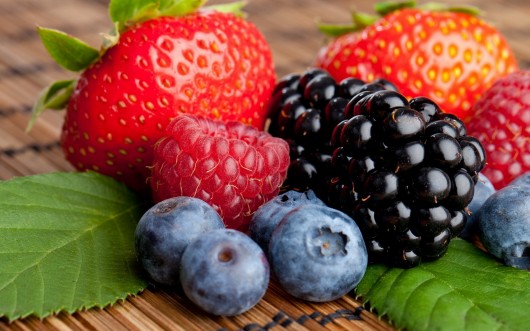Functional foods: This term has the potential to change the way we think about what we put in our bodies. A functional food is a food that does more than just nourish our bodies and make us feel full; it also has secondary health benefits like reducing the risk of diseases or promoting optimal health and longevity, and they even help to keep your skin healthy.
[spoiler title=”Summary: Functional Foods” style=”fancy”] Functional foods are foods that nourish our bodies, reduce the risk of diseases and promote optional health and longevity include cold-water fish, nuts, whole grains, legumes and berries. These foods are guaranteed to be nutritional and also work to prevent a variety of health problems. While many companies claim that their product is a functional food, it is imperative to understand foods and ingredients to determine which foods are actually best for your body. [/spoiler]Before we continue, we have to put out a disclaimer. When you are out shopping for functional foods at the grocery store, don’t believe everything you read on the product labels. You need to ask yourself what additional health benefits a particular food can bring you, keeping in mind that another ingredient in the food may cancel out the nutritional benefits that one ingredient offers. This is your key in making informed choices about your diet and health.
Let us now take a look at five categories of functional foods suggested by the Academy of Nutrition and Dietetics. Their research confirms these foods’ health benefits that do not only satisfy our cravings, but also make us healthier individuals.
Cold-Water Fish

Cold-water fish include salmon, sardines, and fresh tuna. They are considered functional foods because of the benefits of the omega-3 fatty acids found in them. Omega-3 fatty acids have shown to decrease the risk of cardiovascular disease by 29% if eaten at least once a week.
Omega-3 fatty acids are also shown to have potent anti-inflammatory and anti-diabetic properties if consumed regularly. Parts of our body get inflamed when they attempt to protect themselves from harmful stimuli, like pathogens or irritants. However, there are people who are obese and who have some problems with their immune system tend to have more issues with inflammation. Omega-3 fatty acids have shown to be an effective treatment for inflammation in people with conditions like these. Omega-3 fatty acids, like those found in cold water fish, help improve nerve response when cells or parts of the body are irritated.
Nuts

In addition to having similar properties to those of cold-water fish because of their omega-3 fatty acid content (though in lower quantities), nuts have also shown to help regulate blood sugar levels, even in people with metabolic syndrome. This means that nuts help glucose, or sugar, levels in your blood remain balanced, keeping energy levels constant and helping your body optimize energy use.
In addition, each nut has individual properties that make them functional foods. Almonds and cashews, for example are high in magnesium, which is a mineral that helps regulate blood pressure. Higher fat nuts like walnuts, pecans, and almonds, help reduce bad cholesterol, which help keep your arteries and heart healthy.
Whole Grains

Because we hear so much about whole grains, we sometimes forget to revisit why exactly whole grains are so important to our diet. Whole grains like oat bran contain tons of soluble fiber, which can aid in controlling blood sugar levels. They have also shown to be effective in patients with diabetes. Consuming at least four servings of whole grains per day can help reduce your cholesterol levels and as a result, help reduce blood pressure.The FDA has given the recommendation of 4 servings of soluble fiber a day, and whole grains are the perfect functional food to meet those standards.
Legumes

Legumes like beans, peas, and chickpeas are also full of soluble fiber and they are one of the best vegetarian protein sources. When they are eaten as recommended by physicians or dietitians, legumes can reduce the risk of cancer. This makes sense because dietary fiber helps to regulate digestion and clean out the bowels. One study also shows that consuming the recommended daily amount of soluble fiber results in a lower risk for breast cancer, in both pre- and post-menopausal women.
Berries

Berries are absolutely functional foods because they have so much health power in each little one! Their rich purple and red colors are caused by anthocyanin pigments, which contain powerful antioxidants. Antioxidants help prevent degenerative diseases of aging, like cancer, cardiovascular disease, immune system problems and even cataracts. Antioxidants help keep cells all over the body healthy by destroying free radicals in the body. The array of diseases that antioxidants in berries can prevent are truly remarkable and worth noting.
It is important to note that the Food and Drug Administration does not have an official definition for functional foods, so while many companies will claim that their products are functional foods, it is up to us to understand what a functional food actually means. For this reason, it is so important that we, as consumers, educate ourselves about our bodies, the food we put in it, and the effects of those foods on our bodies. This will immensely help us make smart and healthy choices when it comes to our food.



